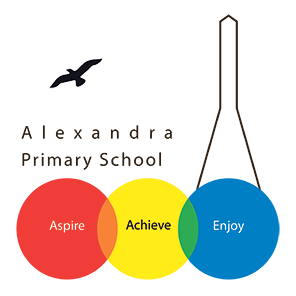PSHCE at Alexandra
At Alexandra Primary School we believe that Personal, Social, Health, Citizenship Education (PSHCE) and Relationship, Sex and Health Education (RSHE) helps to give pupils the knowledge, skills and understanding they need to make informed choices, lead confident, healthy, independent lives, in order to become active and responsible citizens.
Through PSHCE and RSHE, we aim to give children the tools to make sense of their personal experiences, to understand and manage their feelings and to successfully navigate the world that they are growing up in.
We are a rights respecting school and our PSHCE curriculum is connected to the four key areas; well-being, participation, relationships and self-esteem. It promotes the values of respect, dignity and non-discrimination.
Our Curriculum
Early Years
In Early Years PSED (Personal, social and emotional development) is split into three areas:
- making relationships
- self-confidence and self-awareness
- managing feelings and behaviour
The school fosters and develops relationships between home, school and local community. Children are encouraged to learn to work, share, take turns and co-operate with others. They are encouraged to be independent and make choices for themselves. They are also encouraged to be sensitive to the needs of others and to respect other cultures and beliefs. Children are enabled to become confident and develop a positive self-image.
KS1 and KS2
We follow the Jigsaw scheme of work. This is a mindful approach to PSHCE which brings together Personal, Social, Health Education, emotional literacy, social skills and spiritual development in a comprehensive scheme of learning.
- Being Me in My World
- Celebrating Difference
- Dreams and Goals
- Healthy Me
- Relationships
Children are taught a lesson a week. Teaching strategies are varied and are mindful of preferred learning styles and the need for differentiation. Jigsaw is designed as a whole school approach, with all year groups working on the same theme (Puzzle) at the same time.
Additional Opportunities & ways to help at home
- Talk Together
- Use everyday moments: Chat during mealtimes, walks or car rides about feelings, friendships, and choices.
- Ask open questions: “What made you smile today?” or “How did you solve that problem?”
- Model respectful disagreement: Show how to listen, reflect and respond calmly when opinions differ.
- Build Emotional Literacy
- Name emotions: Help children recognise and label feelings—happy, worried, frustrated, proud.
- Use books and stories: Talk about characters’ choices, emotions and relationships.
- Create a calm corner: A cosy space with cushions, books or sensory toys for self-regulation.
- Encourage Positive Relationships
- Role-play scenarios: Practise sharing, turn-taking, and resolving conflicts with toys or puppets.
- Celebrate kindness: Notice and praise thoughtful actions—“That was really kind of you to help.”
- Talk about friendships: Discuss what makes a good friend and how to handle tricky moments.
- Promote Safety & Decision-Making
- Discuss safe choices: Road safety, online safety, and saying “no” when something feels wrong.
- Use age-appropriate media: Watch child-friendly videos about safety and decision-making together.
- Empower independence: Let children make small choices—what to wear, how to organise their bag.
- Introduce Money & Responsibility
- Play shop: Use pretend coins and role-play buying and selling.
- Talk about saving: Use jars or envelopes to show how money can be saved for goals.
- Discuss needs vs wants: Help children understand budgeting and thoughtful spendingills. If you think that your child would enjoy coming, please come to the office and fill the request form.
